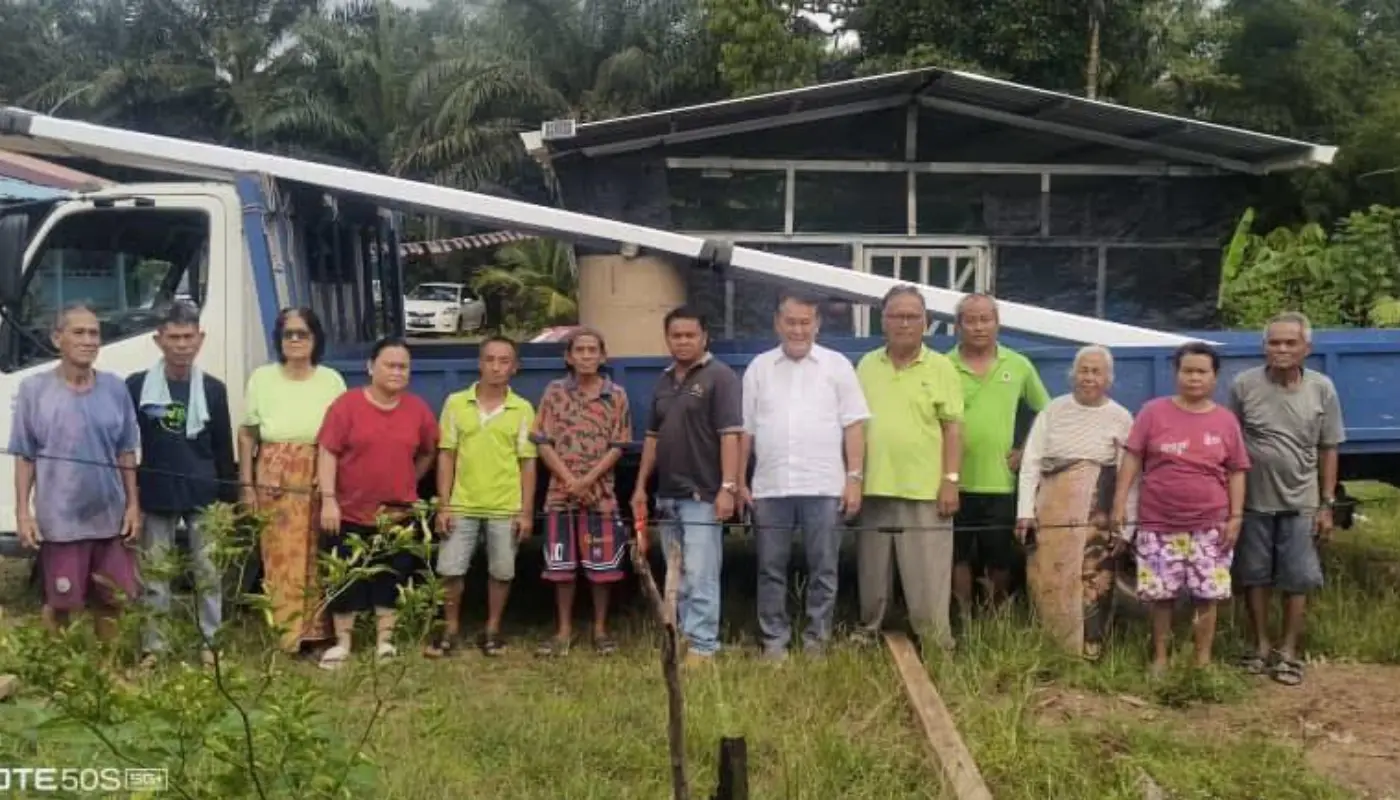SELANGAU – Nineteen families residing in Rumah Dagang Abong at Nanga Ensurai in the Batang Oya area have been provided with new roofing materials through a state housing initiative. The assistance, comprising spandek roofing sheets, was distributed under the Sarawak Poor People’s Housing Rehabilitation Project, commonly known as MRP-PPRMS.
The handover ceremony was formally officiated by the Member of Parliament for Selangau, Munan John Andrew. This project forms a component of the wider governmental strategy to address the welfare needs of communities in rural locations, ensuring they are not overlooked in development planning.
The primary objective of providing roofing aid is to undertake essential repairs to the longhouse’s structure. This intervention is crucial for guaranteeing the comfort and safety of all inhabitants, offering improved protection against the elements, particularly during periods of heavy seasonal rain. Secure housing is a fundamental aspect of enhancing quality of life.
During the event, the MP underscored that projects of this nature reflect the administration’s steadfast dedication to the well-being of its rural citizens. He stated that the initiative demonstrates a genuine enthusiasm for helping people achieve a living standard that is both safe and comfortable. He also expressed his hope that the residents would utilise the assistance responsibly for the collective benefit.
Community leaders and residents of Rumah Dagang Abong conveyed their profound appreciation for the support. They noted that the provision of building materials would significantly alleviate the financial strain associated with maintaining and repairing their traditional homes. For many families, such costs can be prohibitive without external aid.
This distribution is not an isolated event. The government has plans to extend similar assistance to other areas within the Selangau parliamentary constituency in the foreseeable future. The ongoing MRP-PPRMS programme is a key instrument in this effort, aiming to reach more rural households with essential home improvement aid.
The broader goal is to elevate the standard of living in an inclusive manner, ensuring that development progress is felt evenly across the state. Programmes like this are vital for addressing basic infrastructure needs in remote communities, thereby supporting social stability and community cohesion. The focus on longhouse maintenance also helps preserve cultural heritage sites.
Longhouses are a quintessential feature of rural Sarawak, serving as both homes and community centres. By assisting in their upkeep, the government supports both the physical well-being of residents and the continuity of traditional living arrangements. This project highlights the interconnectedness of welfare, culture, and development in the state’s policy approach.



